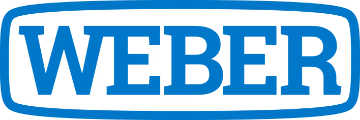
The Challenge Before Q.wiki
Until 2011, our quality management (QM) system consisted of a centralized collection of Word and Excel files. While it technically met the minimum requirements for audits and customer expectations, it fell short in a critical area: everyday usability.
There was a persistent gap between what was actually happening in practice and what was documented. Real knowledge often lived elsewhere — in hallway conversations or email threads between experienced team members. The downside? Only those directly involved stayed informed, while everyone else lacked visibility into the bigger picture.
We quickly realized that true organizational value and operational excellence couldn’t be achieved this way. To close the gap, we needed to shift our mindset:
Everyone should be able to contribute to and access process knowledge — right where that knowledge is created. And managers needed a system that also supported strategic oversight and governance.
Why We Chose Q.wiki
We discovered Q.wiki — perhaps by chance — during an event at RWTH Aachen, where we met Modell Aachen GmbH. They were already pioneering a new generation of quality management: interactive, collaborative, and wiki-based.
That first contact led to a pilot project — and it didn’t take long to convince key stakeholders throughout the company. The benefits were immediately clear, and we quickly decided to roll out Q.wiki across the entire organization.
Success with Q.wiki
What continues to impress us about Q.wiki is its open, collaborative approach. The system enables true cross-departmental dialogue, allowing all process stakeholders to engage directly with the workflows that affect them.
This isn’t just about documentation — it’s about co-creation:
One of the keys to our success was strong alignment from the start: the QM team, IT department, and executive leadership all pulled in the same direction. That unity paved the way for a smooth rollout and long-term adoption.
Measurable Engagement
Years later, Q.wiki remains a cornerstone of our management system — not just technically, but culturally. The high level of acceptance is evident in our usage data:
Over 16,000 system accesses per month — and consistently rising.
Conclusion
Q.wiki turned our fragmented, compliance-focused documentation into a living, collaborative management system. It brings our teams together, empowers employees to take ownership, and ensures that process knowledge stays visible, accessible, and continuously evolving.


"Quality is the one thing that’s non-negotiable."
“Q.wiki was the ideal starting point for rolling out knowledge and process management across the organization.”


“It’s not certificates that make processes successful — it’s our employees. And 86% of them use Q.wiki every month.”


